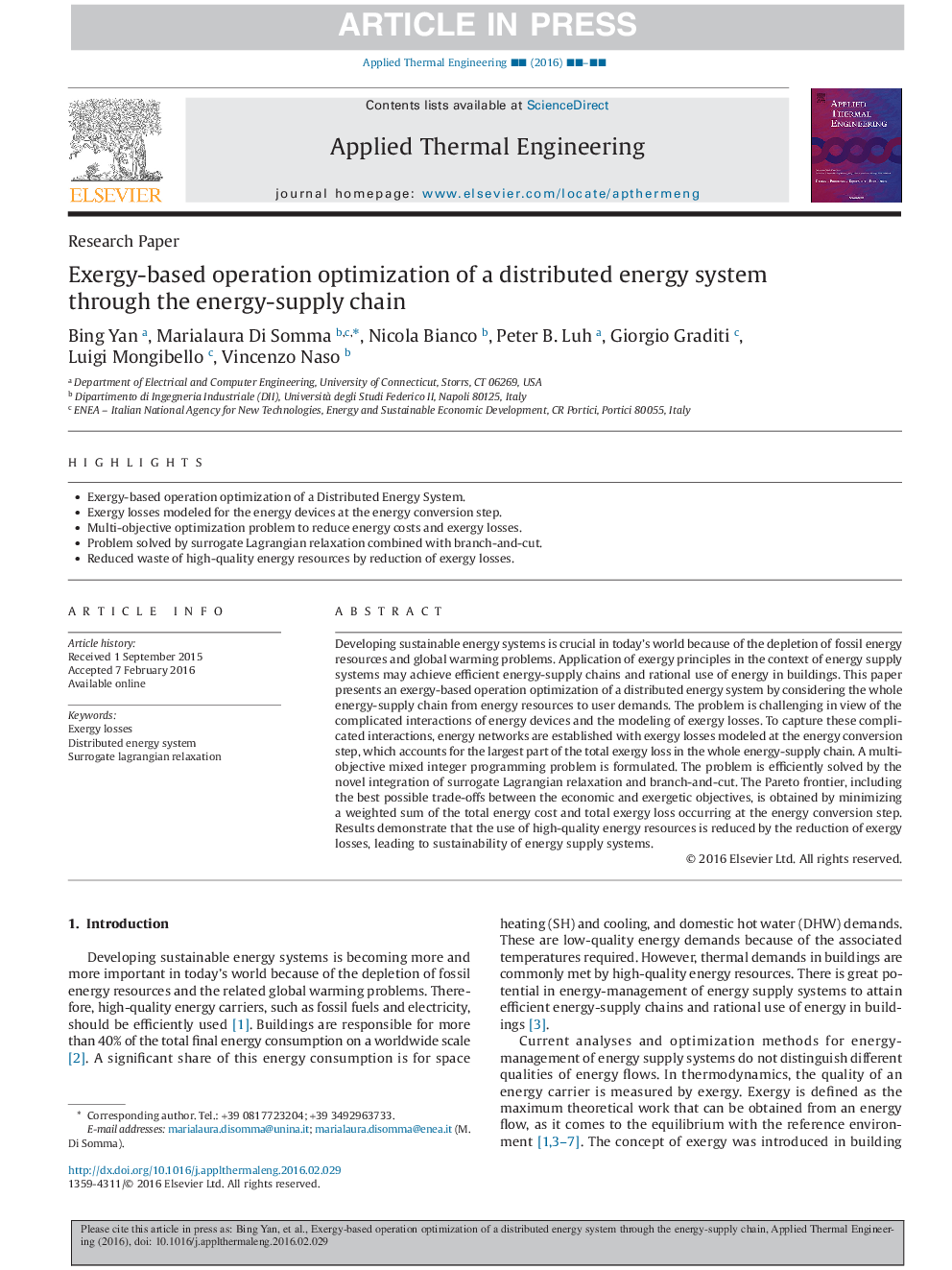| Article ID | Journal | Published Year | Pages | File Type |
|---|---|---|---|---|
| 7048249 | Applied Thermal Engineering | 2016 | 11 Pages |
Abstract
Developing sustainable energy systems is crucial in today's world because of the depletion of fossil energy resources and global warming problems. Application of exergy principles in the context of energy supply systems may achieve efficient energy-supply chains and rational use of energy in buildings. This paper presents an exergy-based operation optimization of a distributed energy system by considering the whole energy-supply chain from energy resources to user demands. The problem is challenging in view of the complicated interactions of energy devices and the modeling of exergy losses. To capture these complicated interactions, energy networks are established with exergy losses modeled at the energy conversion step, which accounts for the largest part of the total exergy loss in the whole energy-supply chain. A multi-objective mixed integer programming problem is formulated. The problem is efficiently solved by the novel integration of surrogate Lagrangian relaxation and branch-and-cut. The Pareto frontier, including the best possible trade-offs between the economic and exergetic objectives, is obtained by minimizing a weighted sum of the total energy cost and total exergy loss occurring at the energy conversion step. Results demonstrate that the use of high-quality energy resources is reduced by the reduction of exergy losses, leading to sustainability of energy supply systems.
Related Topics
Physical Sciences and Engineering
Chemical Engineering
Fluid Flow and Transfer Processes
Authors
Bing Yan, Marialaura Di Somma, Nicola Bianco, Peter B. Luh, Giorgio Graditi, Luigi Mongibello, Vincenzo Naso,
